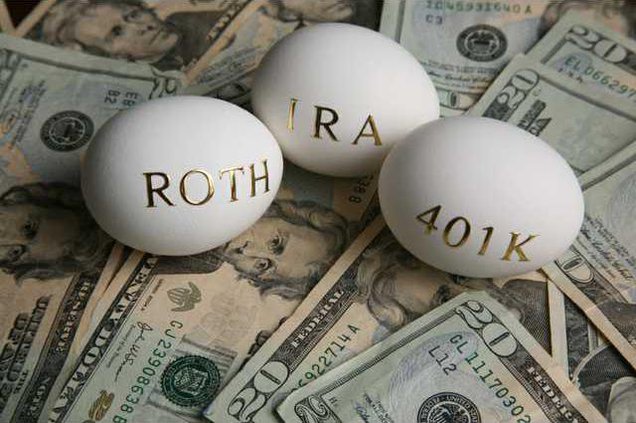As baby boomers roll toward retirement, half of them don't have retirement savings, according to a new report from the U.S. Government Accountability Office.
Fifty-two percent of households 55 and older haven't saved a dollar for retirement, according to the study, although half of those do have a pension. Among the 48 percent that report some retirement savings, the median amount is $104,000 for households age 55-64, or about $310 a month.
Older households, age 65-74, have higher savings at $148,000 or $649 a month, which still offers little on which to live.
Baby boomers are facing fewer pensions than previous generations. In 1975, most workers with pensions had a guaranteed lifetime benefit, but today, most retirement plans, like 401(k)s, are based on a worker's contributions, and offer no guarantee of lifetime income.
"Many boomers are probably realizing, 'Yikes, it's up to me,'" Cathy Weatherford, president of the Insured Retirement Institute, told CNBC.
"They're probably asking themselves, 'How can I make this money last?'" She said. "Unfortunately, for many of us I think the answer is 'I'm not so sure.'"
An IRI survey in April found 27 percent of baby boomers are confident they will have money to last through their retirement, down from 37 percent in 2011. Many older people have struggled to make ends meet during and after the recession, leaving little extra to sock away for retirement savings.
Almost a quarter of baby boomers said they have difficulty paying for a mortgage or rent in the past 12 months, according to the IRI survey, and 36 percent said they plan to retire at 70 or later, up from 19 percent in 2011.
The GOA report shines a light on the problem of Social Security funding, as the program's trust fund is set to run out of money in 2034, when incoming payroll taxes won't be able to cover all scheduled benefits. About 40 percent of households age 65-74 receive most of their income from Social Security, according to the report, at an average of about $1,287 per month.
America's oldest population those 75 and older rely even more on Social Security, for 61 percent of their income.
Senator Bernie Sanders, who is running on the Democratic ticket for the presidential nomination, had requested the report.
"This report makes it clear that there is a retirement crisis in America today," Sanders said in response to the report. "At a time when half of all older workers have no retirement savings, we need to expand, not cut, Social Security benefits so that every American can retire with dignity."
Many lack the financial know-how and started planning too late, Annamaria Lusardi, academic director of the Global Financial Literacy Excellence Center, told CNBC. "Only 46 percent say they have ever tried to figure out."
"If it is hard to support 30 years of retirement with a 40-year career, if you start at age 50, of course, it is going to be really, really hard," she said.
Fifty-two percent of households 55 and older haven't saved a dollar for retirement, according to the study, although half of those do have a pension. Among the 48 percent that report some retirement savings, the median amount is $104,000 for households age 55-64, or about $310 a month.
Older households, age 65-74, have higher savings at $148,000 or $649 a month, which still offers little on which to live.
Baby boomers are facing fewer pensions than previous generations. In 1975, most workers with pensions had a guaranteed lifetime benefit, but today, most retirement plans, like 401(k)s, are based on a worker's contributions, and offer no guarantee of lifetime income.
"Many boomers are probably realizing, 'Yikes, it's up to me,'" Cathy Weatherford, president of the Insured Retirement Institute, told CNBC.
"They're probably asking themselves, 'How can I make this money last?'" She said. "Unfortunately, for many of us I think the answer is 'I'm not so sure.'"
An IRI survey in April found 27 percent of baby boomers are confident they will have money to last through their retirement, down from 37 percent in 2011. Many older people have struggled to make ends meet during and after the recession, leaving little extra to sock away for retirement savings.
Almost a quarter of baby boomers said they have difficulty paying for a mortgage or rent in the past 12 months, according to the IRI survey, and 36 percent said they plan to retire at 70 or later, up from 19 percent in 2011.
The GOA report shines a light on the problem of Social Security funding, as the program's trust fund is set to run out of money in 2034, when incoming payroll taxes won't be able to cover all scheduled benefits. About 40 percent of households age 65-74 receive most of their income from Social Security, according to the report, at an average of about $1,287 per month.
America's oldest population those 75 and older rely even more on Social Security, for 61 percent of their income.
Senator Bernie Sanders, who is running on the Democratic ticket for the presidential nomination, had requested the report.
"This report makes it clear that there is a retirement crisis in America today," Sanders said in response to the report. "At a time when half of all older workers have no retirement savings, we need to expand, not cut, Social Security benefits so that every American can retire with dignity."
Many lack the financial know-how and started planning too late, Annamaria Lusardi, academic director of the Global Financial Literacy Excellence Center, told CNBC. "Only 46 percent say they have ever tried to figure out."
"If it is hard to support 30 years of retirement with a 40-year career, if you start at age 50, of course, it is going to be really, really hard," she said.


